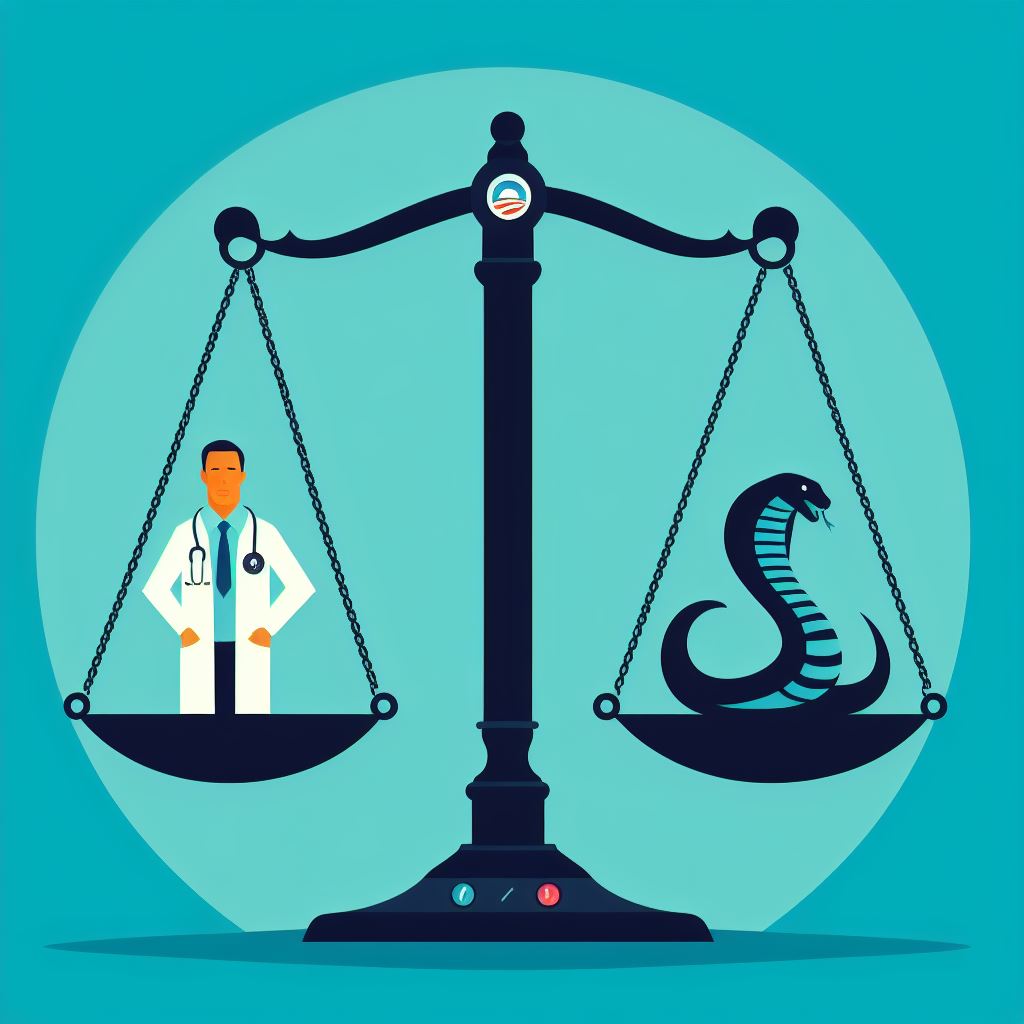Obamacare vs Cobra – How to Choose the Right Coverage

Obamacare and COBRA are among the top options for health insurance coverage for families and individuals in the United States. Understanding the differences between the two can help you make an informed decision about which type of coverage is right for you.
Below is a detailed comparison of Obamacare Vs. COBRA when each would be the right coverage.
What Is Obamacare?
Obamacare, also known as the Affordable Care Act (ACA), is a federal law that was enacted in 2010. The ACA was designed to make health insurance more accessible and affordable for individuals and families in the United States.
One of the main provisions of the ACA is the establishment of health insurance marketplaces. These are exchanges where individuals and small businesses can purchase health insurance. The ACA also provides subsidies to help lower-income individuals and families afford health insurance. In addition, the ACA requires insurance companies to cover a set of essential health benefits, including preventive care, hospitalization, and prescription drugs.
The ACA also includes several other provisions to help improve the affordability and accessibility of health insurance, such as the expansion of Medicaid, the prohibition of lifetime and annual coverage limits, and the requirement that insurance companies spend a certain percentage of premiums on medical care.
Overall, Obamacare has helped to increase the number of Americans with health insurance and has made health insurance more accessible and affordable for many people.
What Is COBRA?
COBRA stands for the Consolidated Omnibus Budget Reconciliation Act. It is a federal law that allows individuals and families to continue their employer-sponsored health insurance coverage after a qualifying event, such as losing a job or experiencing a reduction in hours.
COBRA is intended to provide temporary health insurance coverage for individuals and families who experience a gap in coverage due to a qualifying event. It is not a permanent health insurance solution and is typically only available for a limited time – 18 to 36 months. To continue your health coverage under COBRA, you must pay the full premium, including any portion your employer previously paid.
If you are interested in continuing your employer-sponsored health insurance coverage under COBRA, you will need to contact your employer or the insurance company within 60 days of the qualifying event. Your employer or insurance company will provide you with information about your COBRA rights and the process for electing COBRA coverage.
Obamacare vs COBRA: Factors to Consider When Choosing the Right Coverage
So, how do you choose between Obamacare and COBRA? Here are some factors to consider:
Affordability
One of the main differences between Obamacare and COBRA is the cost of coverage. Obamacare plans may be more affordable for some individuals and families, especially if they are eligible for subsidies. COBRA, however, can be more expensive because you are responsible for paying the full premium yourself.
Coverage
In terms of the extent of coverage, both Obamacare and COBRA offer comprehensive health insurance that covers a wide range of medical services. However, the specific benefits and coverage limits may vary depending on the plan. There are some coverage differences to consider.
Obamacare plans are required to cover a set of essential health benefits, including preventive care, hospitalization, and prescription drugs. On the other hand, COBRA plans are not required to offer the same level of coverage.
If you have a chronic condition or expect to need a lot of medical care, an Obamacare plan may be a better option. This means that COBRA coverage includes the same benefits, deductibles, copays, and out-of-pocket maximums as the individual’s previous employer-sponsored coverage.
Under the Affordable Care Act, most health insurance plans must cover a set of essential health benefits. These benefits include:
- Ambulatory patient services
- Preventive and wellness services and chronic disease management
- Behavioral health treatment
- Emergency services
- Hospitalization, including surgery and overnight hospital stays
- Pregnancy, maternity, and newborn care
- Mental health and substance use disorder services
- Prescription drugs
- Rehabilitative and habilitative services and devices
- Laboratory services
- Pediatric services, including oral and vision care
If You Have Pre-Existing Conditions
Under the ACA, insurance companies cannot deny coverage or charge higher premiums based on pre-existing medical conditions. Obamacare prohibits health insurance companies from denying coverage based on pre-existing medical conditions. This means that even if you have a medical condition that you were previously treated for, your health insurance company cannot refuse to cover you or charge you more for coverage because of it.
While under COBRA, beneficiaries can continue their coverage for pre-existing conditions as long as it was covered in the previous policy.
Duration
Another key consideration to make when choosing between Obamacare and COBRA is the duration of coverage. Obamacare plans can be long term. Each policy typically lasts one year and can be renewed over the years. On the other hand, COBRA coverage is temporary and typically lasts for 18 to 36 months. If you need longer-term coverage, an Obamacare plan may be a better option.
Eligibility
Finally, you need to consider your eligibility for Obamacare and COBRA. To be eligible for Obamacare, you must be a US citizen or legal resident and not be incarcerated. You are also eligible if you are a small business owner or self-employed. You must not be eligible for coverage through an employer-sponsored or government-sponsored plan, such as Medicare or Medicaid.
In addition to these general eligibility criteria, you may also be eligible for financial assistance to help you afford coverage through an Obamacare marketplace plan if you meet certain income requirements. The income limits for financial assistance vary based on your household size and the cost of health insurance in your area.
The specific eligibility criteria for Obamacare coverage may vary depending on the state in which you live. You can find out more about Obamacare eligibility and enrollment on the healthcare.gov website or by contacting a healthcare navigator or insurance broker in your area.
To be eligible for COBRA health insurance and COBRA continuation coverage, you must have been covered under an employer-sponsored health insurance plan and have experienced a qualifying event, such as losing a job or experiencing a reduction in hours. You must elect COBRA coverage within 60 days of the qualifying event.
So, Which Is Better: Obamacare vs COBRA
The right option between Obamacare and COBRA health insurance depends on your needs and specific circumstances.
Obamacare is available to anyone who is not offered employer-sponsored health insurance or does not qualify for a government-sponsored healthcare program. COBRA, on the other hand, is only available to certain individuals who have recently lost their job or experienced a change in their employment status.
Obamacare plans may be more affordable and offer more comprehensive health care coverage, but they are only available for a full year. Obamacare offers a wide range of insurance plans at different price points.
COBRA plans allow you to keep your current health insurance plan, but they can be more expensive and are only available for a limited time. Obamacare plans may offer additional benefits, such as preventive care services and coverage for pre-existing conditions, that are not always available with COBRA.
Conclusion
To choose the right health care coverage, you should consider factors such as affordability, coverage, duration, pre-existing conditions, and eligibility. Choose the option that best meets your needs and budget. You may want to speak with a healthcare professional or a licensed insurance agent to help you compare the different options and make the best decision for your situation.
FAQs
Can You Have Both Obamacare and COBRA?
It is generally not possible to have Obamacare and COBRA coverage at the same time. If you are eligible for both Obamacare and COBRA coverage, you must choose one or the other.
How Do I Enroll in Obamacare or COBRA?
To enroll in Obamacare, you can visit the healthcare.gov website or your state’s healthcare exchange. You can also speak with a licensed insurance agent or a healthcare professional to learn more about your options and enroll in a plan. To enroll in COBRA, you must contact your former employer or the health insurance plan administrator to request COBRA coverage.
Can I switch from COBRA to Obamacare?
Yes. If you are enrolled in COBRA, you can switch to an Obamacare plan during the annual open enrollment period. You can also switch if you have a qualifying life event, such as losing your job or getting married. However, note that if you opt to switch from COBRA to an Obamacare plan, you may not be able to switch back to COBRA later.
Can I switch from Obamacare to COBRA?
No, you cannot switch from Obamacare to COBRA. However, you can switch from the Obamacare plan to employer-sponsored health insurance. You will have to find a new job that offers employer-sponsored health insurance. You can also switch to an individual health plan. If you switch from an Obamacare plan to employer-sponsored health insurance, you may not be able to switch back to an Obamacare plan later.



